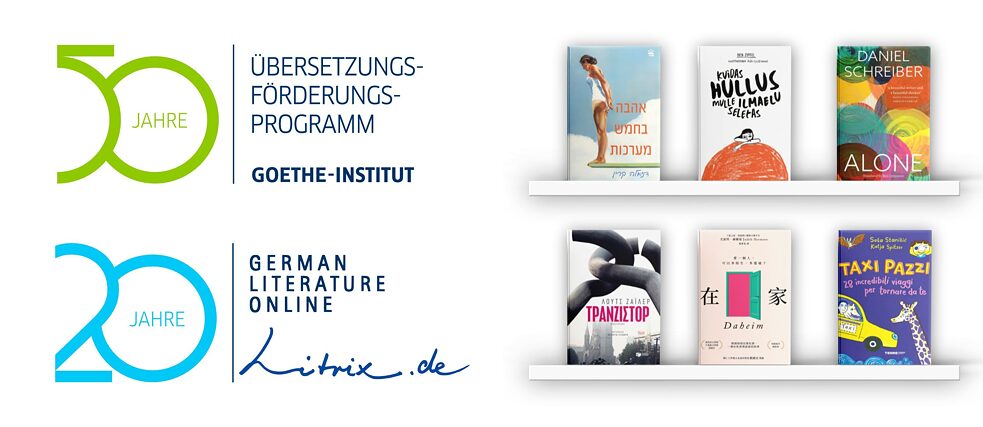Translation Funding
Literature without borders

2024 is a special year for translation funding. The Goethe-Institut is celebrating two anniversaries – the 50th and 20th anniversaries of two programmes that not only facilitate translation of German literature abroad, but also strengthen international cultural exchange as a result.
Without literary translation, says Claudia Cabrera, “we would all only read and learn in our own language and would have no access to other languages, worlds and cultures. It is thanks to literary translators that world culture exists.” She herself is a translator from Mexico and has translated works by Cornelia Funke, Robert Musil and Anna Seghers, among others, into Mexican Spanish; she is receiving the Goethe Medal for her work from the Goethe-Institut this year. For important books to be translated, she continues, special funding programmes are needed to support publishers financially.
50 years of the translation funding programme
The Goethe-Institut took on this task 50 years ago and still facilitates access to German literature abroad today with its translation funding programme. Publishers who wish to translate current German-language works into their respective national languages receive a contribution towards the translation fee.
Over that time, more than 7,000 translations of German books have been funded, including versions of Jenny Erpenbeck’s “Kairos” in seven different languages and the first translation of Thomas Mann’s works into Azerbaijani. Around 300 translations of fiction, books for children and young adults, comics and non-fiction can be published each year thanks to the financial support.
Cultural exchange, encounters and dialogue
The President of the Goethe-Institut, Carola Lentz, sees support for translation as an important pillar of international cultural exchange. “The Institut not only ensures literary diversity and promotes awareness of German literature abroad, but also contributes to a world of diversity and dialogue.” Translations, she says, bring about changes of perspective “that cross cultural and political boundaries and thus promote debates about current literary and social issues.”
In May 2024, the Salone del Libro book fair in Turin was the place to be for dialogue and encounters involving literature lovers from all over Italy – with German as the guest of honour. Austria, Germany and Switzerland came together to present the German-language literary scene. Spoken word performances, panel discussions on social issues and a variety of readings and talks were part of the programme. In October of this year, Italy will in turn be the guest of honour at the Frankfurt Book Fair.
20 years of Litrix
The guest of honour appearance of the German language in Turin was the highlight of the Italian focus of the Litrix programme. This programme is part of the Goethe-Institut’s translation funding programme, which is also celebrating a special anniversary in 2024. For 20 years, it has been offering publishers financial incentives to translate selected works of German literature into a focus language, which changes every three years.
In this way, readers worldwide are given access to new publications on the German-language book market. After Arabic, Chinese, Portuguese, Spanish, Russian and Greek, the focus has been on Italian in the period from 2022 to 2024, with translations of Charlotte Gneuß’s novel “Gittersee” and Jens Balzer’s “Ethik der Appropriation” receiving funding, among other works.
Honouring translation work
The Goethe-Institut has already recognised the great importance of translation work for cultural exchange several times by awarding the Goethe Medal to translators. They include Georges-Arthur Goldschmidt (Goethe Medal 2002), who translated the works of Franz Kafka and Peter Handke into French, John E. Woods (Goethe Medal 2008), who translated Thomas Mann’s novels into English – and this year’s prize-winner Claudia Cabrera. In addition to her impressive translation output of more than 60 works, she is committed to exchanges for translators between Mexico and Germany and promotes German-Mexican industry and cultural dialogue through her work.